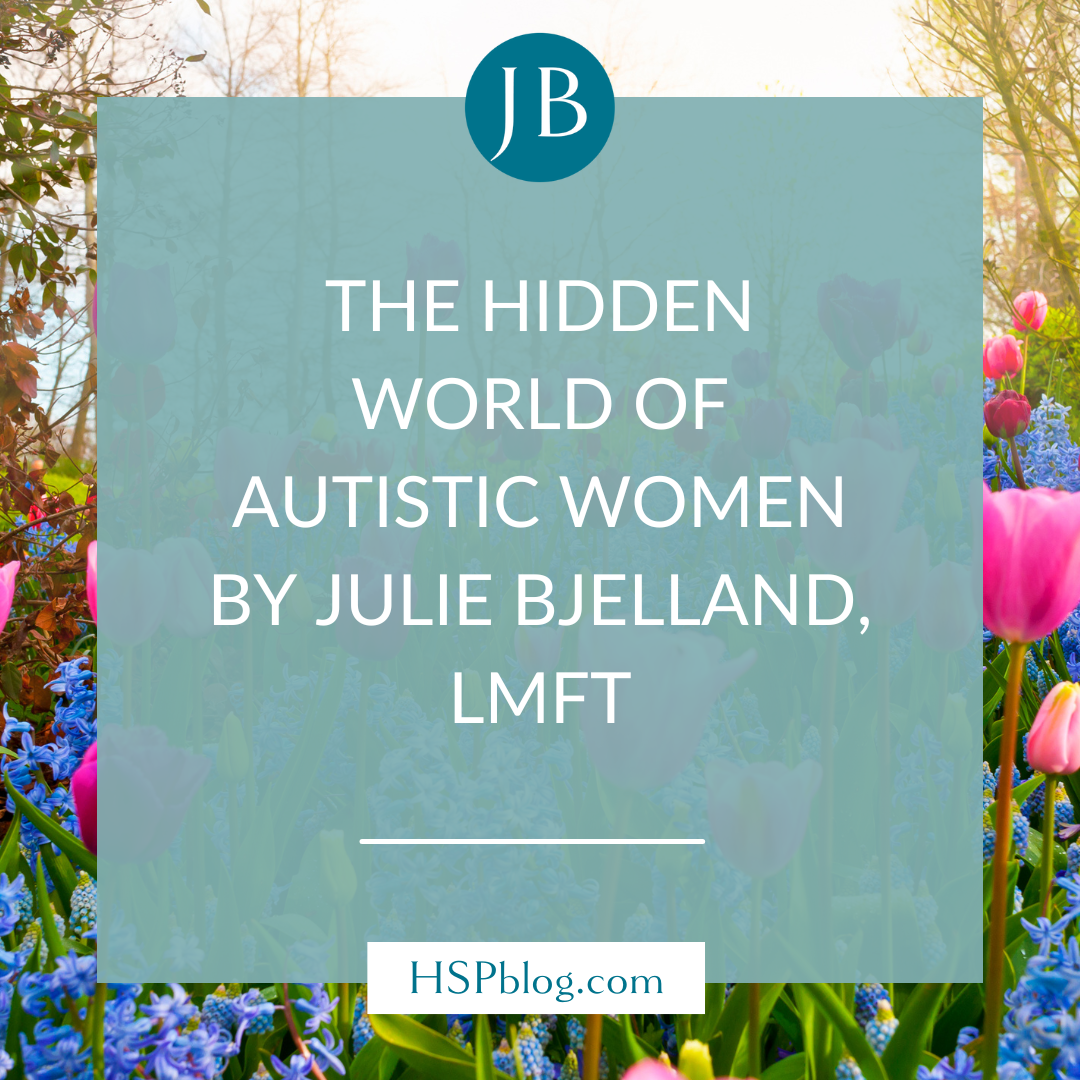Understanding Autism: Insights from Those Who Live It and a Personal Journey of Discovery, by Julie Bjelland, LMFT
Autism uniquely affects individuals, shaping their social interactions, sensory perceptions, and cognitive functions. A recent anonymous poll sought to understand these experiences from those on the spectrum themselves, revealing the complexities and diversities of being autistic.
Navigating Social and Sensory Worlds
Many respondents expressed difficulties with social interactions, feeling excluded or misunderstood due to challenges in interpreting social cues and initiating conversations with allistic (non-autistic) individuals. This often results in isolation. Sensory sensitivities were also prominent, with everyday environments causing overwhelming sensations for autistic individuals, necessitating careful management to avoid exhaustion.
The Double-Edged Sword of Masking
Masking, or hiding autistic traits to fit into society, was highlighted as a common but costly strategy. It can facilitate easier navigation through social situations but at the expense of personal well-being, leading to anxiety, loss of self-identity, depression, and often suicidal ideation. This can delay autism diagnosis into adulthood, complicating individuals' relationship with their identity.
Unseen Strengths and Contributions
Despite these challenges, autism brings unique strengths. Many noted their ability to perceive details and patterns missed by others, making significant contributions in various fields. Autistic individuals often possess deep empathy and joy, challenging misconceptions of emotional disconnect.
A Call for Greater Inclusivity and Understanding
The need for societal adaptations to accommodate neurological diversity was evident. Respondents desired environments that appreciate their differences without necessitating masking, pointing to a need for increased inclusivity and understanding in all facets of life.
Personal Insight: A Journey to Self-Discovery and Self-Compassion
My path to understanding my autism began with feeling different and misinterpreting it as high sensitivity. Life's normal activities were disproportionately challenging, leading to exhaustion and sensory overload in social settings. Newer autism research opened my eyes to my true experiences, shifting my perspective from feeling flawed to feeling self-compassion. This knowledge transformed my self-perception, allowing me to appreciate the strengths of my neurodivergence—like processing vast amounts of information and maintaining deep, passionate interests. This journey is not just about self-reflection but also an invitation to others feeling 'out of place' to consider neurodivergence as a potential underlying factor.
Insights
The insights from the poll responses below underscore the diversity of autistic experiences and the importance of listening to autistic voices. By understanding and valuing neurodiversity, we can foster a more inclusive and supportive society. This journey involves education, empathy, and a commitment to celebrating differences as strengths, paving the way for all individuals to thrive.
Resources and Upcoming Guide
At the end of this article, I share some more resources. I’m also creating an extensive guide to support and educate autistic individuals, those who suspect they might be, and for practitioners to understand better. I’ll announce that in an upcoming newsletter, and you can sign up at the bottom of my website.
Poll Results
I asked autistic people in an anonymous poll what it feels like to be autistic, and here are their individual (unedited) responses:
I once said I felt like when I was born I was dropped off on the wrong planet.
Living in a personal world of incredible richness and depth of meaning that seems to be out of sync with the majority of the population.
Experiencing the world without armour. Super sensing and aware of energy around me. I can connect patterns from disparate topics and think faster than most around me. Yet, I often need to move, transition and process or take action slower than most.
always uncomfortable in groups, feelings of not fitting in, environmental sensitivities (temperature, scents, noise)
It’s like being a jellyfish in a world of porcupines.
A large portion of my day is spent managing sensory input.
I would say that say it is like being left out, confused socially, or dismissed as being odd. I have social deficits, have not made a new friend in over 15 years, and feel very hostile when I feel rejected, which has been for most of my life.
I think for me, it is an almost constant feeling that I experience the world differently from the majority of people. It can leave one feeling quite isolated and like an alien. Feeling like others perceive me and the way I do things and experience the world as weird. For me one of the main things is the high sensory processing, which is what lead me to discover HSP but I never related to autism until Julie started talking about it. The amount of information my brain perceives and processes in a given day is so much, and I often feel very tired and have to manage overwhelm. I now I have to actively manage my energy and do a lot of self care, which many neurotypical people don't understand. I've experienced a lot of challenges socially. I feel like I come across as awkward, shy and introverted and don't seem to understand neurotypical social cues and as such have difficulty forming connections. I think if I were to put it in a nutshell, I've spent my whole life trying really hard to fit and conform and never quite being able to do so, despite my best efforts. I've become very good at masking and getting by and as such went undiagnosed until quite late into adulthood because I can function fairly well in every day life, but not as my true authentic self. I do want to touch upon the positive though and I think on the flip side of all that is the ability to perceive and appreciate great beauty and a great capacity for joy and passion and also to care deeply and have great empathy. I think autistics can be change makers because of this. I think that we have great abilities including supercomputer brains so that is one of the reasons I don't like looking at it as a disability.
In this world and society: Hard, confusing, loud, dangerous, exhausting, cant keep up. There is also good such as: Empathetic, more kind, usually more in tune with well being, more observant. Society is not made for neurodivergence, Grocery stores are too loud, with too many people, the lights are too bright, and you get judged for wearing ear plugs, or headphones, or glasses to dull the light. I have to work where I can, and usually they are not equipped for, or cannot properly accommodate my neurodivergences. It is hard to live alone and balance everything that you have to manage to "adult" right. Neurotypicals judge you for how you eat, etc.
It feels I have to flip myself on in order to go out into the world, to fit in, appear normal in social situations and to process all the incoming sensory information. I deeply process everything but also on a delay, which causes me to feel like an alien at times when I can’t keep up. Exhausting really. Then when I’m at home in my sanctuary I can flip off to rest and rejuvenate until tomorrow comes and I put the mask on once again.
It’s like being chosen to watch over and uncover life’s mysteries. It comes at a cost though. I feel as though I have x-ray vision sometimes but, without the power to change harmful things quickly enough. It like being powerful and powerless simultaneously.
Living on the far outer edge of where everyone else is. Looking in and never being part - yet requiring isolation where I thrive. It's been so confusing but clarity is coming and I love how I am.
What it's like... I would say misunderstood.
it can be very isolating, socializing is an ongoing challenge and exhausting, hiding being different so as not to be ostracized, frustration at not being able to do what others can do.
I live in a foreign land where the language they are speaking makes no sense to me. When they laugh, I laugh, but my laughter is without joy because I did that just to look like them.
I’ve never really felt like I fit in. Everyday, “simple” things are more challenging for me. Overwhelming, exhausting, and lonely.
Feels like I am overly sensitive to sound and day to day chatter on TV or radio drives me absolutely bonkers.
I feel everything wherever I am. I easily get overwhelmed. I experience hyperacousia.Bright lights bother me.
I feel misunderstood and alienated most of the time and occasionally feel like I'm in solitary confinement.
I see and interact with the world in ways many others don't understand but it's where I feel my best.
Used to be a nightmare , now becoming a blessing as I learn to identify my challenges better
Neurodivergent. Learns, thinks and associates different. Smart. Capable. Functioning.
Someone that is unique and very intimate in who they share their true self with.
lonely. like being from another planet. continuously overwhelming.
It's like life is one big inside joke, but you aren't part of it.
Impulsive, uncoordinated in activity and thoughts and emotions.
It's like being given a box of puzzle pieces with no picture.
Being invisible and watching the world and it never sees me.
You find life more challenging in a number of ways.
To feel different from other people all the time.
Like being a foreigner in a foreign land
Scarey and confusing or just dull
Being an alien among humans.
Unable to relate to people.
Frustrating, misunderstood
Feeling like an outsider
Weird out of place
Sensory overwhelm
The odd man out
Overwhelming
Alienating
left out
Tired
Get the Guide for Understanding Autism in Women
More Resources
Autistic Women’s Group (located inside my Sensitive Empowerment Community)
Discussing my Journey on The HSP Podcast
More Articles on The HSP Blog
Embracing Neurodiversity: A Path to Improved Mental Health by Julie Bjelland, LMFT
Navigating Autism Diagnosis in Highly Sensitive Women by Julie Bjelland, LMFT
Thoughts on this Article?
I’d love to hear from you in the comments below.
I’m Julie Bjelland, LMFT
Licensed Psychotherapist, author, and founder of Sensitive Empowerment, specializing in high sensitivity and adult-diagnosed autism in women. I love developing tools that balance our sensitive nervous system, reduce challenges, and help us reach our fullest potential so we may excel in our unique talents. I’ve created a global hub of extensive support, including online courses, the Sensitive Empowerment Community—a nurturing sanctuary—a globally top-ranked podcast, articles, free webinars, and more. My passion is helping create a world where differences are embraced as strengths and celebrated. Learn more at JulieBjelland.com



Many sensitive and neurodivergent women reach a point where they can no longer manage everyone else’s needs. Learn why this shift happens, how burnout develops, and how to begin building sustainable boundaries and relationships that honor your nervous system.